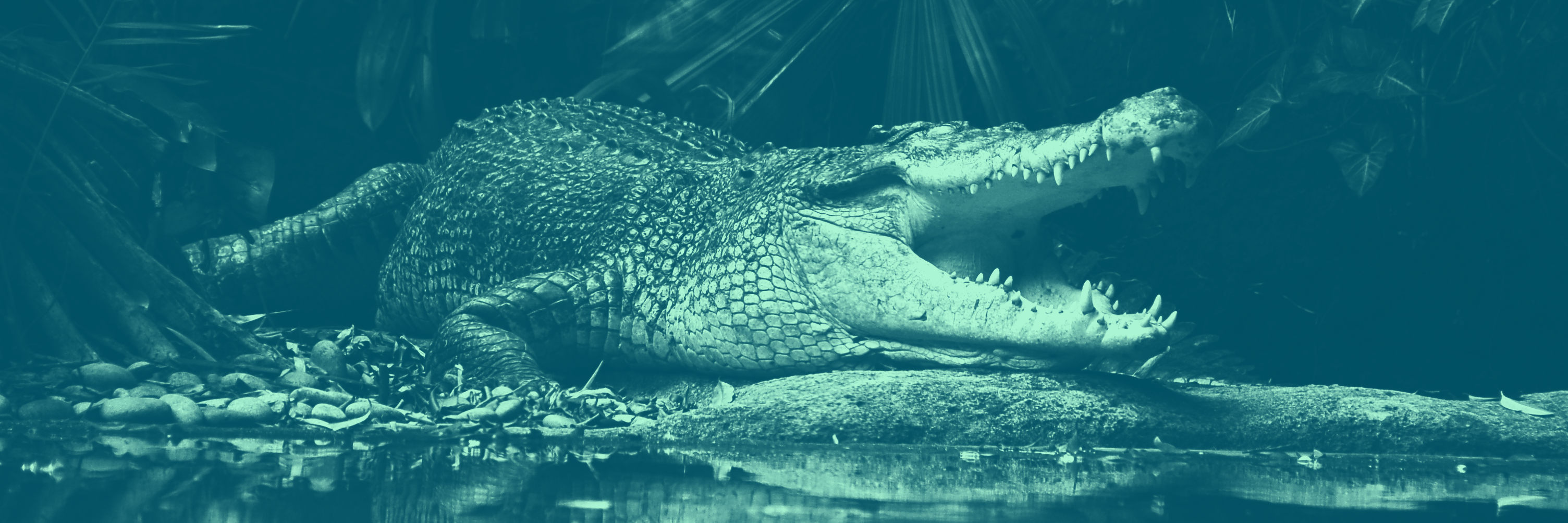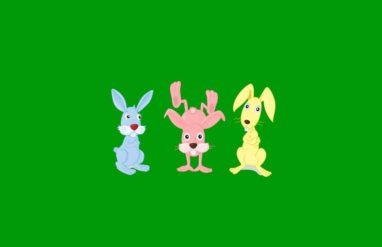While enjoying a dip in the ocean, there’s one thing you definitely don’t want to see: a shark fin in the water. The same thing can be said about a dip in a lake or pond—only the creature you want to avoid happens to be a massive reptile instead. But is the animal who glides along the swampy waters with just its eyes showing a crocodile or an alligator? What’s the difference between the two?
Although these reptiles are commonly mixed up, alligators and crocodiles are two distinct animals with several defining features. Let’s take a closer look (but don’t get too close!).
What is an alligator?

When it comes to reptiles, the word alligator stands out as a noun that is defined as “either of two broad-snouted crocodilians of the genus Alligator, of the southeastern U.S. and eastern China” or more loosely, “any broad-snouted crocodilian, as a caiman.”
The American alligator or Alligator mississippiensis ranges in length from 6 to 16.5 feet and is black with a powerful, wide jaw, sharp teeth, and a rounded snout. Alligators can be found across the southern United States from North Carolina and Florida to Texas and Oklahoma. Alligators are mainly freshwater reptiles and typically live in swamps, rivers, lakes, or ponds. However, they can survive in salt water for a short period of time.
For example: Since alligators are mainly freshwater animals, you don’t have to worry about them when swimming in the ocean.
As a verb, alligator refers to a finish, paint, or varnish thats surface cracks and acquires the weathered appearance of alligator hide.
Alligator’s first recorded use was in 1560–70 via the Spanish word lagarto (“lizard”), which is ultimately derived from the Latin lacertus (“lizard”).
What is a crocodile?

Crocodile is a noun that refers to “any of several crocodilians of the genus Crocodylus” that can be found living in sluggish waters and swamps of the tropics. Crocodile can also refer to “any reptile of the order Crocodylia; crocodilian.” Crocodiles have a long V-shaped snout, can be as long as 20 feet, and weigh up to 2,200 pounds. These creatures are typically a greyish-green color and live in tropical parts of Africa, Asia, the Americas, and Australia. They typically live in brackish or freshwater areas.
For example: Although crocodiles typically eat fish, some older crocodiles have been known to eat humans.
Crocodile can also refer to these animals’ tanned skin or hide that’s used to make luggage, shoes, belts, bags, and other accessories.
For example: After paying such a high price, she only used her crocodile purse on special occasions.
Crocodile‘s first recorded use was around 1250–1300, and it comes from the Greek krokódeilos (“crocodile”).
How to tell the difference
Although both alligators and crocodiles are crocodilians, they are two distinctly different reptiles. The easiest way to tell them apart is by looking at their heads and coloring. Remember that alligators are typically a darker color and have U-shaped snouts, flashing only their upper teeth when their mouths are closed. Crocodiles on the other hand are a lighter green and have the V-shaped snout that’s longer and narrower. Crocodiles also show off their upper and lower sharp teeth even when their jaws are closed.
Although alligators and crocodiles belong to the same group of reptiles, the only place where they coexist is south Florida.
Here are more example sentences:
- One of the defining characteristics that helps you distinguish a crocodile from an alligator is a crocodile‘s toothy grin, which shows off both the top and bottom teeth.
- Due to the placement of its eyes, ears, and nose, a crocodile leaves the top of its head out when submerged under water and can still see, hear, and breathe.
So the next time someone says “See you later, alligator!” or “In a while, crocodile!” remember that these friends parting ways aren’t the same animal.














